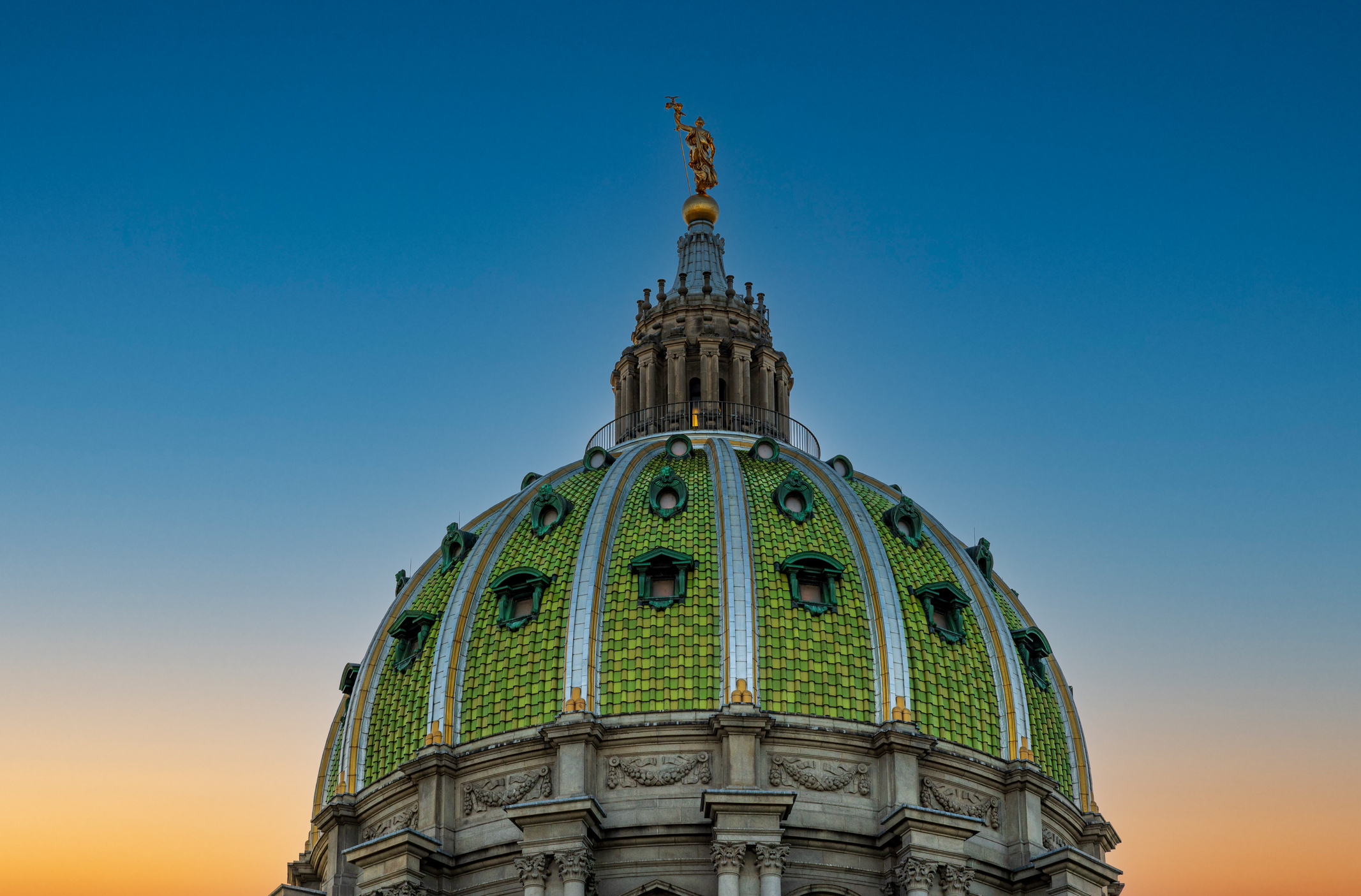
In 2025, state governments across the U.S. are advancing initiatives to improve administrative efficiency and modernize civil service, adopting tailored strategies to better serve residents. Recognizing the importance of adaptability, innovation, and stakeholder engagement, several states are considering the creation of temporary government entities to develop strategies to meet their unique fiscal and administrative challenges. Below, we explore key government efficiency initiatives recently proposed in New Hampshire, Oklahoma, Mississippi, Missouri, New Jersey, Pennsylvania, South Carolina, and Texas.
Many state-level initiatives echo or respond to President Trump’s Executive Order 14158: Establishing And Implementing The President’s “Department Of Government Efficiency”, which established the Department of Government Efficiency (DOGE), led by Elon Musk to reduce spending, reform regulation, and reorganize executive agencies. Acting under DOGE prescriptions in early 2025, the Trump administration initiated a deferred resignation program for federal government employees, halted work by the U.S. Agency for International Development, and withdrew FEMA funding from New York City.
New Hampshire Launches Commission on Government Efficiency
In January 2025, New Hampshire Governor Kelly Ayotte signed Executive Order 2025-01, creating the Commission on Government Efficiency (COGE) to streamline state operations and eliminate inefficiencies. The EO tasked the commission with identifying opportunities to enhance the effectiveness of state agencies while ensuring responsible fiscal management.
The 15-member commission will consist of appointees from the governor, the House Speaker, and the Senate President. It will comprehensively review state expenditures and develop strategic recommendations to optimize government performance, particularly for programs serving vulnerable populations. The commission will submit its findings directly to the governor, aligning government functions with economic and fiscal priorities.
Oklahoma Creates DOGE-OK for Budget Review and Efficiency
In February 2025, Oklahoma Governor Kevin Stitt issued Executive Order 2025-04, establishing the Oklahoma Division of Government Efficiency (DOGE-OK) within the Office of Management and Enterprise Services. The EO tasked DOGE-OK with eliminating wasteful spending, analyzing state agency budgets, and recommending improvements for operational efficiency.
A Chief DOGE Advisor from Oklahoma’s business community will lead the initiative, working alongside government officials to ensure a business-minded approach to government efficiency. The division will submit a detailed report by March 31, 2025, outlining strategies for cost reduction, recommendations for fiscal reform, and an assessment of the federal-state fiscal relationship. DOGE-OK will remain operational until July 4, 2026, to ensure sustained progress toward efficiency.
Mississippi Establishes Health and Welfare Efficiency Task Force
On February 6, 2025, the Mississippi Senate passed Senate Bill 2272 and sent it to the House for further consideration. The bill would establish the Mississippi Health and Welfare Efficiency Task Force to review state agency operations, streamline service delivery, and eliminate redundant regulations.
If passed, the task force, composed of agency leaders, legislative appointees, and representatives from the governor’s and attorney general’s offices, would focus on agencies such as Medicaid, Human Services, and Child Protective Services. The task force would submit its recommendations to the Mississippi Legislature by October 1, 2025.
Missouri Lawmakers Propose Joint Committee on Government Efficiency
Missouri’s House Bill 1083, introduced by Representative Riggs, would create a Joint Committee on Government Efficiency to assess state regulations, review agency budgets, and identify cost-saving opportunities.
The proposed committee would consist of ten legislators appointed by Senate and House leadership. Its responsibilities would include evaluating state-owned properties for potential sale or lease, conducting performance audits, and recommending regulatory reforms. Additionally, the bill proposes a Government Efficiency Fund, where savings generated from the committee’s efforts would support Missouri’s economic development initiatives.
New Jersey Proposes Delegation on Government Efficiency (DOGE)
Several New Jersey lawmakers introduced Assembly Joint Resolution 213 (AJR213) to create an independent Delegation on Government Efficiency (DOGE) focused on cutting spending and streamlining government operations.
The bipartisan delegation would include public members with expertise in auditing and large-scale management. Operating independently, the New Jersey DOGE would collect public input and issue a final efficiency report within 20 months. The sponsors argue that with New Jersey facing a multi-billion-dollar budget deficit, this initiative would ensure fiscal responsibility while maintaining essential services, such as pension obligations and property tax relief.
Pennsylvania DOGE?
In Pennsylvania, State Senator Kristin Phillips-Hill issued a cosponsorship memo in December 2024 for the Transparency, Reform, and Accountability for Pennsylvania (TRAP) Act to evaluate and modernize the state’s regulatory framework. The bill proposes a Pennsylvania Delegation on Government Efficiency (DOGE) to review existing regulations, identify outdated or duplicative policies, and recommend legislative modifications. The Pennsylvania DOGE would gather public input and submit its findings to the General Assembly, Governor, and executive agencies, and it would conclude after five years.
Meanwhile, Senator Doug Mastriano has introduced legislation to create the Pennsylvania Department of Government Efficiency (Pa. D.O.G.E.), an initiative aimed at enhancing fiscal accountability and reducing wasteful spending in the state. The proposal outlines a new department with broad auditing authority over all state agencies, ensuring transparency and responsible use of taxpayer dollars. It would have the power to temporarily suspend payments to agencies deemed inefficient, pending review by a newly formed bipartisan oversight committee. This committee, composed of legislative representatives from both parties, along with officials from the Treasury and Auditor General’s Office, would review reports from Pa. D.O.G.E. and determine whether funding suspensions should be upheld. The department would also have the ability to recommend the dissolution of agencies it finds to be wasteful, subject to approval by the oversight committee.
South Carolina Considers Commission on Fiscal Restraint and Efficiency
On February 5, 2025, several South Carolina legislators introduced a resolution to establish the Commission on Fiscal Restraint and Government Efficiency to review state spending, reduce financial burdens, and modernize government functions. The nine-member commission would include appointees from legislative leadership and the governor. The Director of the Department of Administration would serve as a non-voting chair. The commission would submit an initial budget review by October 1, 2025, and a final report in October 2026. The commission would sunset on October 2, 2026.
Texas Proposes Advisory Committee for Government Efficiency
Texas House Bill 2106, introduced by State Representative Will Metcalf, seeks to establish the Texas Department of Government Efficiency, an advisory committee responsible for evaluating state agencies and recommending efficiency improvements.
The eight-member committee, appointed by state leadership, would review agency operations and propose enhancements. It would meet regularly to issue biennial reports, with the first report due by December 1, 2025. If passed, the bill would take effect immediately with a two-thirds vote or on September 1, 2025, with a simple majority.
From The Experts
Expert insights from the authors at Duane Morris Government Strategies.
Ryan Stevens
State-led government efficiency initiatives are accelerating, echoing President Trump’s efforts at the federal level to increase government efficiency. By mirroring or adapting elements of the national DOGE initiative, several state programs aim to enhance government effectiveness, ensure fiscal responsibility, and modernize public services.
Latest News
Photo credit: iStock.com/BackyardProduction Governor Josh Shapiro delivered his 2025-26 budget address, outlining economic initiatives, public safety measures, infrastructure improvements, and education funding. His speech emphasized continued investment in key sectors to strengthen Pennsylvania’s [...]
Photograph taken inside the state capitol of the spectacular 272-foot, 52 million-pound dome. On February 6, 2024, Pennsylvania Governor Josh Shapiro (D) delivered his 2024-25 Budget Address. Shapiro's 2024 budget aims to provide tangible benefits [...]
Photo credit: iStock.com/Sergey Demchenko Many states are ending the 2022 fiscal year with a budget surplus, resulting in significant legislative deliberations about the best way to utilize those funds. During the fiscal year 2021, some [...]
Photo credit: iStock.com/pcess609 Sales taxes are responsible for funding a sizeable portion of the majority of states' budgets. States implement sales taxes—both general and selective—on a wide variety of goods and services sold to consumers [...]






Stay In Touch